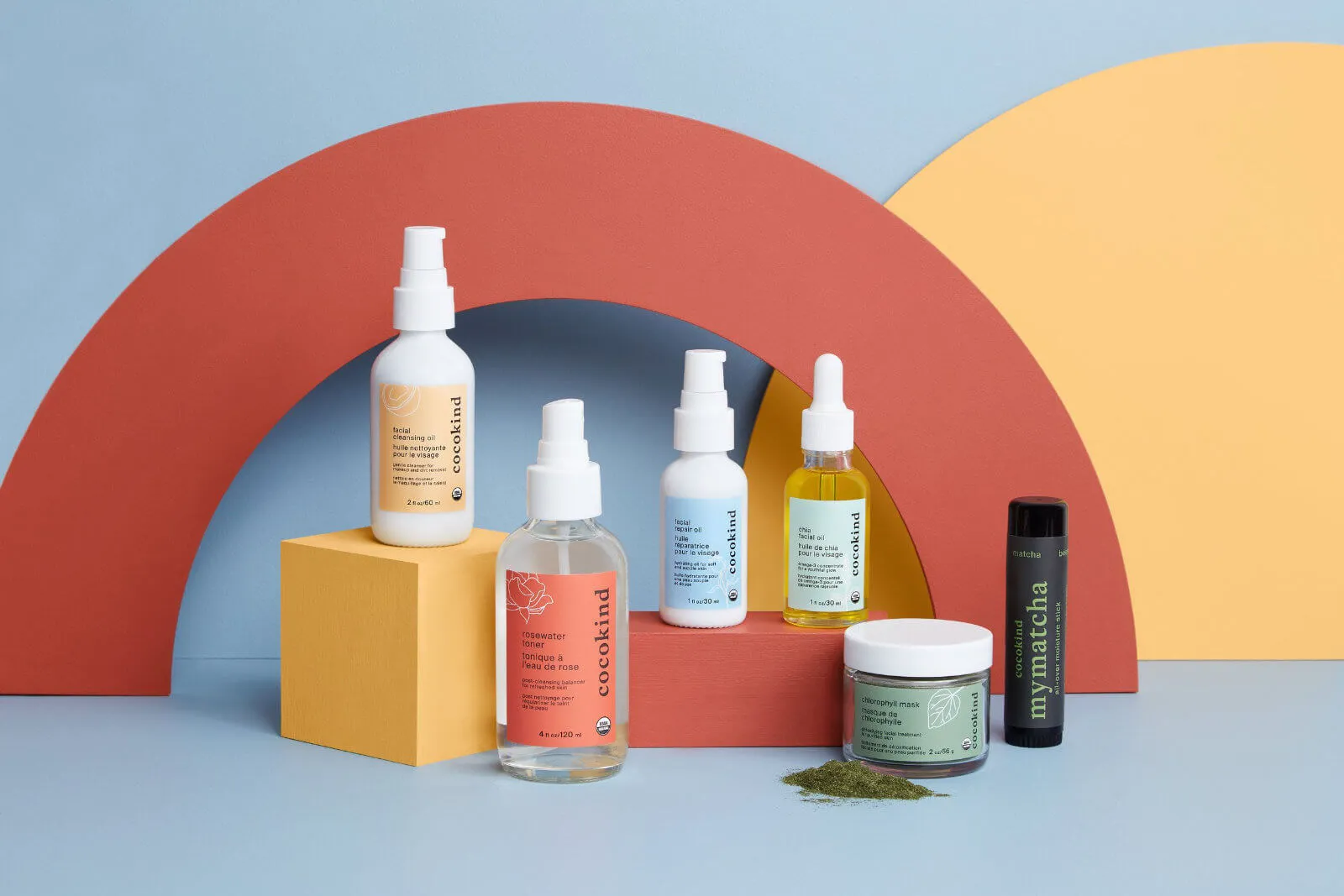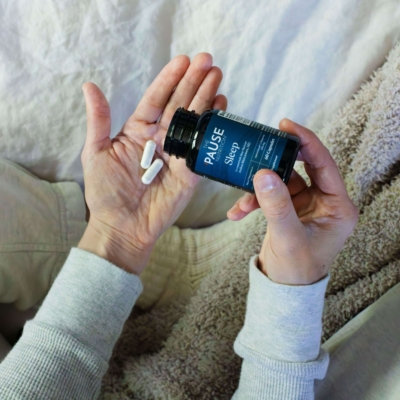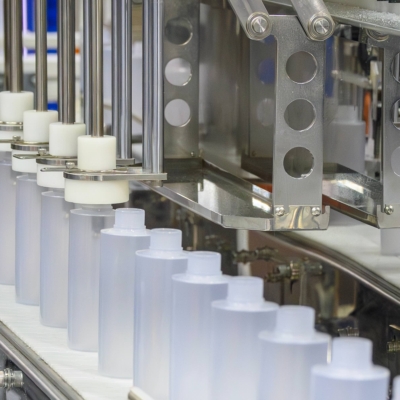
The Influencer-Led Campaign Calling On Brands To Publicly Oppose MAHA
There’s a widening schism in the world of beauty and wellness: MAHA or nuh-uh.
A growing number of founders, content creators and industry professionals have begun distancing themselves from Make America Healthy Again, Robert F. Kennedy Jr.’s movement to fight chronic diseases that adherents regard as elevating preventive health. Critics argue it promotes views that contradict scientific consensus, especially on vaccines. The backlash is becoming visible: Whitney Wagner Hartley, a lifestyle, beauty, wellness and fashion content creator, is publicly tagging brands as “Marked Safe from MAHA” once they clarify their opposition.
“I’ve been a huge advocate of people putting their power back into their hands and knowing that they can make a difference, even if it’s very, very small,” says Wagner Hartley, who has 82,000 followers on Instagram and over 20,000 followers on TikTok. “To me, this was a tangible way to give people power when we feel powerless.”
Wagner Hartley is reaching out to brands and retailers to see if they’ll identify themselves as against MAHA and pledge not to sponsor content creators spreading MAHA-related misinformation. Her outreach comes at a moment when certain brands that remained quiet during much of the second Trump administration are reconsidering their political timidity.

In her message to companies, Wagner Hartley writes, “Draw a line in the sand and be transparent about your support, or publicly disavow the movement and the figures behind it. Educate your audiences using real, science-backed, inclusive information. Refuse to partner with creators and institutions who promote harm—whether it be through disinformation or discriminatory policy. Acknowledge that wellness includes safety, dignity and justice for everyone…You cannot hitch your wagon to this administration and feign being apolitical or naive. We are asking you to put being principled over being palatable.”
So far, Wagner Hartley has contacted more than 40 companies. Those that have signed on to her pledge include Cocokind, Perelel, Corpus Naturals, Baeo, 14th Night, CAP Beauty, Muu and The Great. She plans to publicize the list of signatories for consumers interested in spending their dollars on companies opposed to MAHA. Wagner Hartley emphasizes the effort isn’t meant to spark a boycott of brands that won’t make the pledge, but to help consumers shop intentionally.
For Kerrilyn Pamer, founder of clean beauty and wellness e-tailer CAP Beauty, the choice to sign the pledge was straightforward. “The problems that MAHA purports to fix are rooted in social injustices, racism and lack of equity and can’t be addressed by simply reformulating products or removing dyes,” says Pamer. “Their intention to increase health for Americans focuses on these smallest of concerns, all while enabling massive and catastrophic changes to happen on a larger scale.” She adds, “Healthcare is community care, not only self-care, and I believe that if MAHA approached their mission from a place of inclusion and social justice, their messaging and reach would be enormously more impactful.”
Many brands, however, haven’t responded to Wagner Hartley’s request, and a few, including home cleaning brand Branch Basics, declined to take the pledge. Branch Basics, which recently entered Target, told her that it’s not political and partners with creators across a broad array of political views. Taking a stance could put brands with Republican-leaning customer bases in a difficult position as sentiment around MAHA breaks sharply along party lines. According to the Gardner Food & Agricultural Policy Survey of 1,000 respondents, 65% were aware of MAHA in May 2025, and views of the movement split by ideology, with awareness reaching about 80% among very conservative voters, but only around 58% among moderates.

RFK Jr.’s recent statements, ranging from suggesting peanut allergies stem from aluminum and pesticides in vaccines to amplifying debunked claims that Tylenol use in pregnancy causes autism, have drawn sharp condemnation from medical experts and intensified criticism of the movement. Not everyone in the wellness industry has backed away from MAHA or Trump. A portion of entrepreneurs who’ve favored the administration’s lighter regulatory touch remain less inclined to reject MAHA outright, contributing to a fractured landscape.
Still, as actions by RFK Jr. and the Trump administration turn up the temperature, wellness industry professionals are weighing political alignment before entering business relationships. Speaking on the condition of anonymity, a beauty and wellness public relations firm founder says she checks whether prospective clients follow RFK Jr. on social media. “If they do, it’s a red flag for me,” she says.
On a recent call with a doctor seeking representation, it quickly became clear where the doctor stood politically. The firm completed the call politely and emailed to decline the work. “We didn’t personally or professionally feel comfortable promoting her message,” says the PR firm founder. “It’s become increasingly hard for me to separate politics from work. Thankfully, I haven’t worked with someone who is very loud and proud MAHA, but I imagine it would be difficult to do my best work when we don’t abide by the same moral compass.”
To bolster the MAHA movement amid rising dissent, Calley Means on Tuesday was appointed a permanent senior adviser at HHS supporting food and nutrition policy. Means, who previously served in a temporary role at the White House and is co-founder of health tech platform Truemed, has been a prominent MAHA figure and a longtime ally of RFK Jr., and aided with RFK Jr.’s introduction to Trump.
As part of his agreement to join the administration, Means is expected to divest his interest in Truemed. RFK Jr. has faced questions about Means’s potential conflicts of interest as a policymaker should he retain a financial stake in Truemed.

Brands that want to take the “Marked Safe from MAHA” pledge can reach out to Wagner Hartley directly, as can consumers suggesting companies for her to contact. She has created a shareable version of the letters for consumers to contact brands on their own.
As much as social media disseminates MAHA ideology, Wagner Hartley asserts it can be a force for uniting like-minded people against MAHA. “There’s so much untapped power in the creators who want to be vocal and want to change things,” she says. “I feel like, if we can get together, we can make change.”





Leave a Reply
You must be logged in to post a comment.